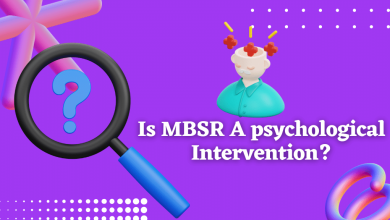Can MBSR Improve Fertility? Tips For Pregnancy
Can MBSR improve fertility?
This is a question that many individuals seeking to improve their chances of conception ask.
Mindfulness-Based Stress Reduction (MBSR) is a practice that has been gaining popularity over the years as a way to manage stress and promote overall well-being.
But can it also help with fertility?
Let’s explore this question in detail.
The Connection Between Stress and Fertility
Stress can have a significant impact on fertility, and many individuals struggling with infertility report feeling stressed, anxious, and overwhelmed.
Stress can disrupt the delicate balance of hormones involved in the reproductive system, leading to irregular menstrual cycles and decreased sperm quality in men.
In fact, stress can lead to unhealthy coping mechanisms such as smoking, drinking, and overeating, which can further reduce fertility.
The Potential Benefits of MBSR For Fertility
While there is currently limited research on the specific effects of MBSR on fertility, there are several ways in which the practice may potentially help to improve fertility:
1. Reducing Stress
MBSR has been shown to be effective in reducing stress levels, which can help to restore hormonal balance and improve reproductive function.
2. Enhancing Immune Function
MBSR has been shown to enhance immune function, which can help to reduce the risk of infection and inflammation that can negatively impact fertility.
3. Improving Sleep
MBSR can improve sleep quality, which is important for fertility as sleep disturbances can disrupt hormonal balance and reduce sperm quality.
4. Encouraging Healthy Habits
MBSR promotes healthy habits such as exercise and mindful eating, which can help to improve overall health and fertility.
Real-Life Scenario
Let’s consider the case of Sarah and John, a couple who have been trying to conceive for over a year without success.
Sarah is a high-achieving executive who often works long hours and feels stressed and anxious.
John is a construction worker who works long, physically demanding hours.
Both Sarah and John have unhealthy coping mechanisms such as smoking and drinking to deal with their stress.
They have tried various fertility treatments without success.
Sarah and John decide to enroll in an MBSR program together to manage their stress and improve their overall well-being.
After several weeks of practicing MBSR, they both report feeling more relaxed and calm.
Sarah’s menstrual cycle becomes more regular, and John’s sperm count increases.
They are able to quit smoking and drinking and adopt healthier habits such as exercise and healthy eating.
Several months later, Sarah becomes pregnant and gives birth to a healthy baby.
Conclusion
While there is limited research on the specific effects of MBSR on fertility, the practice may potentially help to improve fertility by reducing stress, enhancing immune function, improving sleep, and promoting healthy habits.
MBSR is a safe and effective way to manage stress and improve overall well-being and may be a useful tool for individuals struggling with infertility.
It is important to note that MBSR should not be used as a substitute for medical treatment for infertility, but rather as a complementary approach to support overall health and well-being.








